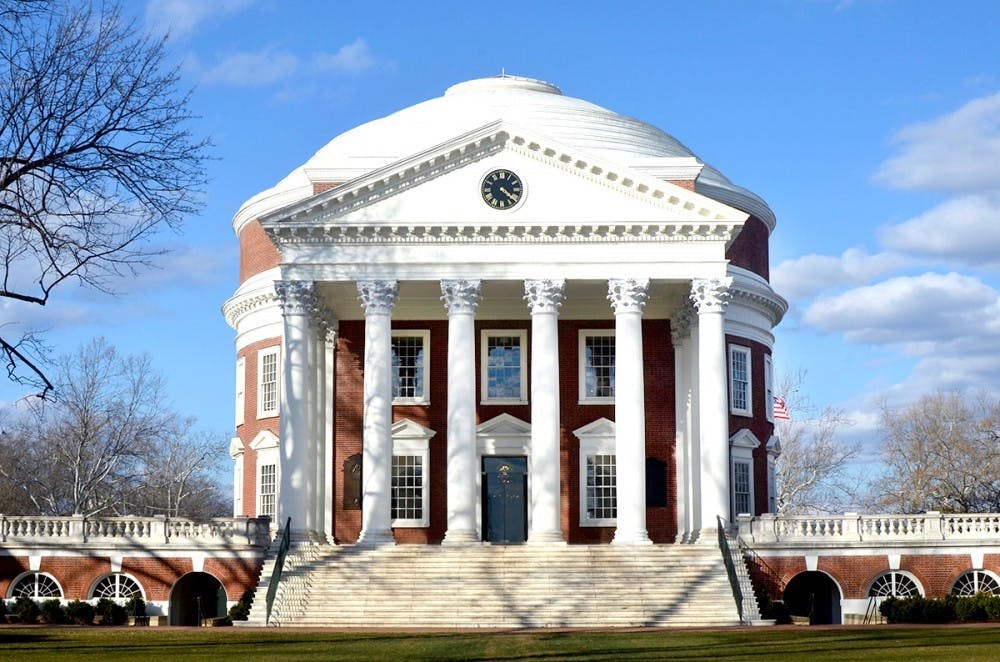In 1963, Jean Piaget conducted his Blanket and Ball study. Piaget showed infants a toy, then hid it under a blanket and observed if they searched for the toy. Children who searched for the toy understood object permanence — meaning they understood that an object still exists, even if it cannot be seen or heard. As University students, we ought to be reminded of this concept. Just because you don’t hear or engage with an opinion or person does not mean they don’t exist. And a university is not the place to hide things under a blanket — it’s a place to stare unflinchingly at the world, however bigoted and broken and hateful, and to change it.
Those who argue Mike Pence should not speak at the University fail to consider deeply that nearly half of our country voted for Mike Pence — half of our country endorses his beliefs, however harmful. Not seeing or hearing him does not change this. Here, I want to be clear — I am not writing to validate Pence’s platform or opinions. However, I am writing in support of him speaking at the University and to dispute the claim that allowing Mike Pence to speak is antithetical to the University’s mission. The University seeks to develop citizen-leaders and to preserve democracy. Not allowing Mike Pence to speak is a departure from these tenets.
In shunning those with different opinions, we do not preserve the engagement over differences that is essential to a democratic society. The University should host Pence as — irrespective of his presence or absence at the University — his views reflect a significant portion of our country. Not listening to a hurtful opinion does not alter these opinions' existence in our democracy. Will not allowing Pence to speak somehow change the minds of the thousands who voted for him and share his beliefs? Will it change Pence’s views? Hosting Pence is a chance to engage with the sentiments of our nation that we often turn away from — it is a chance to confront our political reality at its face value. The existence of the racism, bigotry and hate espoused by Pence is deeply troubling, as is constructing spaces perpetuating illusions of its absence. Now more than ever, delusion in the service of security and comfort is a price our nation cannot afford. The polarization and division that asphyxiate our democracy require not a further disregard of other opinions, but the summoning of every ounce of courage to look at the world as it is. The University is the place to have hard conversations, the place to engage with the other side — if not here, then where?
I understand that a figure like Pence is a source of discomfort and pain for many students who have suffered at the hands of what he represents. My aim is not to discount this experience. However, any normative argument about the actions of a university must be weighed against the purpose of a university. The foremost purpose of a university is to educate. As James Baldwin put it, education should “create in a person the ability to look at the world for himself, to make his own decisions, to say to himself this is black or this is white.”
The duty of a university is to present the world unfiltered, allowing students to determine for themselves what is wrong and right and to engage with the discomfort of difference. It is human nature to seek out those similar to oneself, but a university is one of the few spaces where we are saturated in difference — in background, religion and values. Democracy requires a harnessing of such differences to develop individuals who can strike compromise, who can engage the other, who can transcend the most visceral differences and forge a better, more understanding society and community. Democracy does not demand nor express perfection, but humanity.
Mike Pence is not an ideological anomaly. As the former vice president of the U.S., he holds a powerful perspective and serves as a real reminder of a set of values and opinions held by many across the nation. Hosting Mike Pence does not validate his opinions, but presents them for our debate. The ideas, values and opinions we engage with at the University should be met with Talmudic debate and reason and passion. The measure of our unity and the horizon of our collective future depends upon this confrontation. Universities are a crucial bulwark against the division and polarization of our country — the sands of opinion are subject to the sieve of reason here more than anywhere.
Ultimately, a university does not serve to make judgements and reasonings about what values we ought to uphold and what speech and thought is acceptable — as students pursuing an education, this duty is rightfully ours. I don’t think it is easy to engage a broad spectrum of beliefs, especially in today’s political and social climate, but it is what is right. It demands patience and hope, it incurs pain and hurt, but that is how we can begin to move forward towards a truly democratic society characterized by community and respect — the sacrosanct ideals of the University. This does not come through never looking at the ugly parts of ourselves — in fact, it requires we meet that ugliness with an equal gaze. Only then can we forge a political reality that embraces and values all people. As the old Persian proverb goes “If you do not like the image in the mirror, do not break the mirror, break your face.”
Sarita Mehta is a fourth year in the College of Arts and Sciences. She is the 2021-22 Student Member of the Board of Visitors and serves on the Karsh Institute of Democracy Advisory Board. She can be reached at opinion@cavalierdaily.com.
The opinions expressed in this column are not necessarily those of The Cavalier Daily. Columns represent the views of the authors alone.







